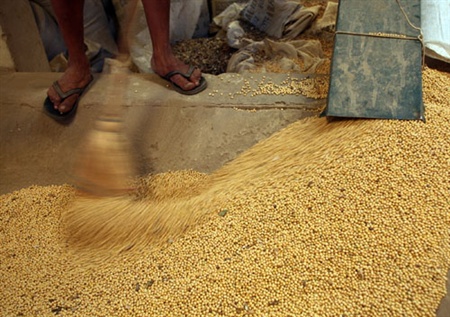Bolivian city highlights bitter rivalries
Fri November 30, 2007 - Reuters, UK
By Ignacio Badal
SANTA CRUZ, Bolivia, Nov 30 (Reuters) - In the downtown boutiques and cafes of Santa Cruz, Bolivian President Evo Morales is widely reviled, but many in its poor outskirts are fiercely loyal to the leftist leader.
This tropical, eastern city is Bolivia's economic hub and a focus of increasingly fierce opposition to the leftist former coca farmer who has angered opponents with a drive to rewrite the constitution to give more power to indigenous groups.
Tensions over the reforms have escalated this week, exposing centuries-old rivalries and suspicions between the indigenous Andean highlands and a European-descended business elite concentrated in the eastern lowlands.
"This government does whatever it wants. It wants to impose things upon us. The indigenous peasant farmers have all the rights and we have none," said Marcos, a company executive, in the city's leafy main square.
"Here in Santa Cruz, we've got cows, but in (the highlands) they've got nothing but rocks. They don't want to turn their lives around, they just want to take our resources," he said, asking not to give his surname.
Santa Cruz, an agricultural center where foreign energy companies have offices, came to a virtual standstill on Wednesday as workers in Bolivia's opposition-controlled regions protested Morales' constitutional reform plans.
 (right) A worker sweeps soybeans in a packing plant in
Santa Cruz, November 30, 2007. Diesel fuel has become scarce in the region,
posing a problem for farmers who need the fuel to power machinery that
harvests their crops. Local authorities are blaming the government for
the lack of fuel. --REUTERS/Andres Stapff
(right) A worker sweeps soybeans in a packing plant in
Santa Cruz, November 30, 2007. Diesel fuel has become scarce in the region,
posing a problem for farmers who need the fuel to power machinery that
harvests their crops. Local authorities are blaming the government for
the lack of fuel. --REUTERS/Andres Stapff
Morales became Bolivia's first leader of indigenous descent in January 2006, ending the political dominance of a mainly white economic elite and raising fears in Santa Cruz that the region, which accounts for one third of the country's economic output, could lose its affluence and stability.
In Santa Cruz, the green and white regional flag is more common than the national flag and walls are daubed with graffiti calling for autonomy from the central government.
WORKING CLASS SUPPORTERS
But not everyone here wants autonomy, and some residents risked their neighbors' ire by shunning the call to stay at home during this week's strike.
Marta Gutierrez, her hair in the long braids worn by indigenous women in the highlands, opened her neighborhood market stall selling calculators as usual on Wednesday, along with many other traders.
"We're working class people and we'll back Evo to the death. This strike is for the rich, for people who don't need to work," she said.
Santa Cruz's population has been swelled by migrants from western highland areas in search of a better life.
Their votes helped Morales' Movement Toward Socialism (MAS) party win in Santa Cruz in elections to choose delegates for the assembly tasked with rewriting the constitution, although the regional government is controlled by his opponents, many of them with close ties to business leaders.
Morales says the reform will give greater autonomy to Bolivia's poor, indigenous minority, but the issue has become the focus of a power struggle between the president and his conservative rivals who want more autonomy for their regions.
His allies in the assembly passed a new draft constitution under military guard and without opposition members, sparking protests that killed at least three people last weekend in one of the worst crisis to hit Morales' government, and prompting the opposition to call this week's strike.
Morales' opponents accuse him of pandering to his Aymara and Quechua Indian power base and ignoring other Bolivians, and criticize his ties with Venezuela's fiery left-wing president, Hugo Chavez.
Although Morales still has the support of the poor, many say he has so far failed to improve living standards in South America's poorest country.
Hanging out the washing beside her mud-brick shack in Santa Cruz, Maria Guarim said she was fed up of Morales after nearly two years of government.
"Evo means well, he tries to help the poor, but he's done it wrong," she said, as chickens scratched in the dust. (Writing by Helen Popper; Editing by Kieran Murray)